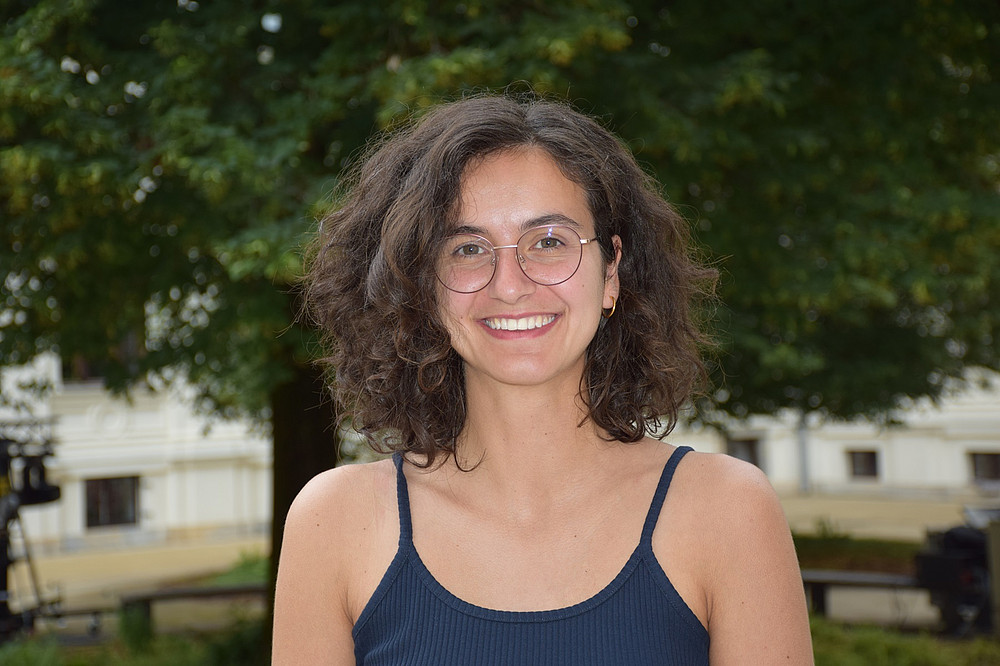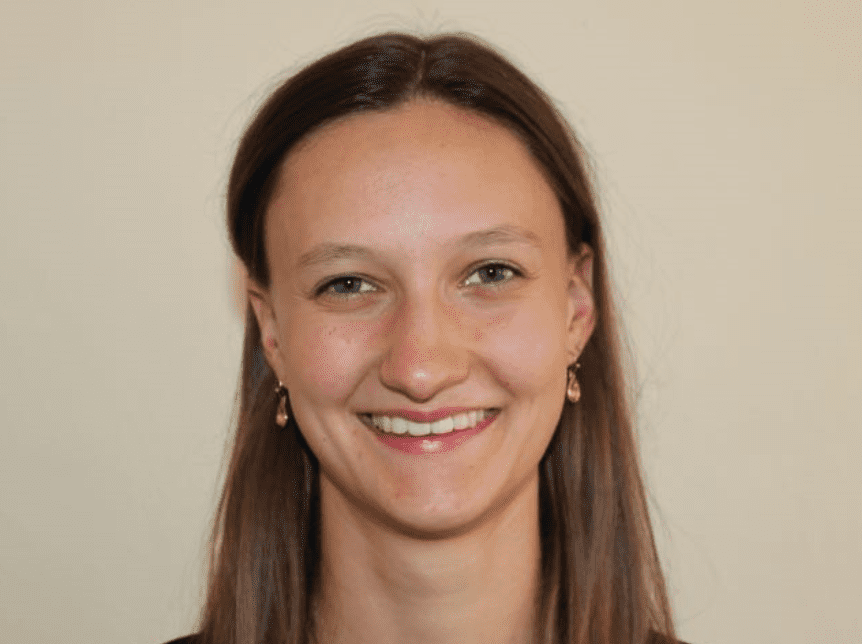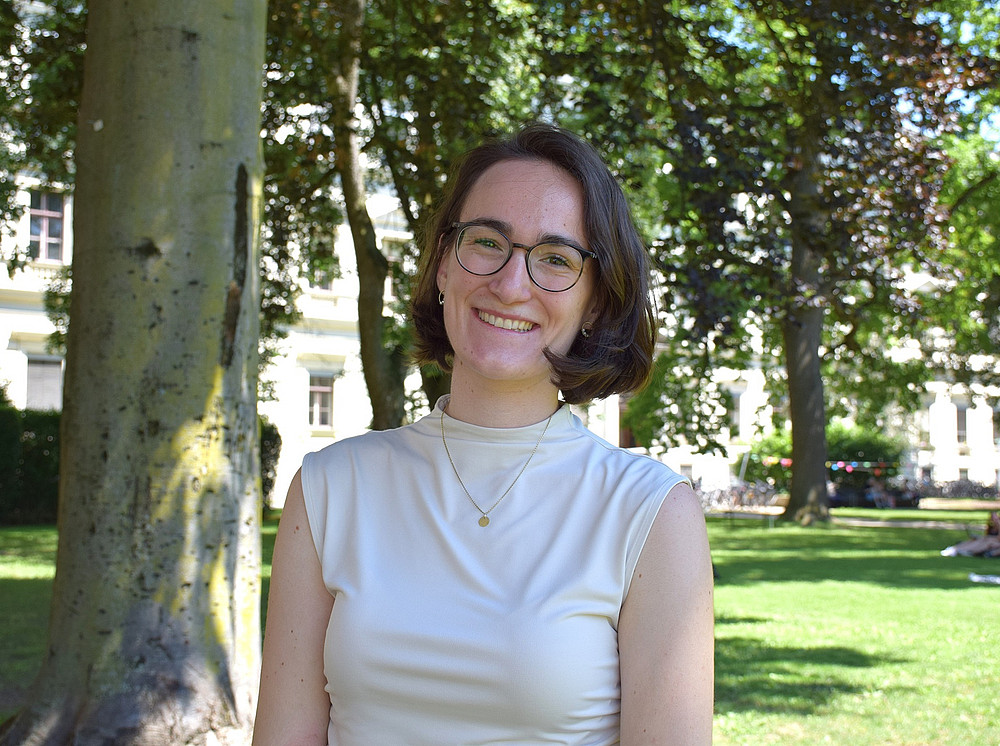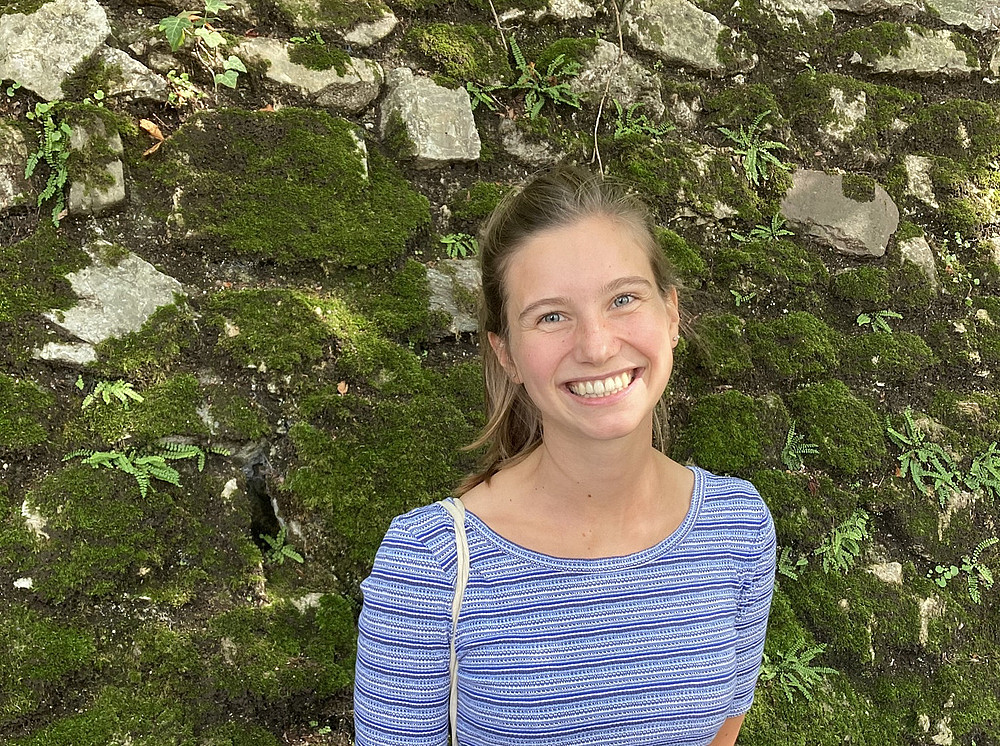Rutger Guillaume Lazou
1st prize dissertations: "What is Owed to the Losers of the Energy Transition? The Case of Fossil Fuel Reserve Owners"
You conduct research in the field of climate justice and environmental ethics - not everyone is familiar with these terms. What problem areas and questions does this philosophical field address and how can it help to tackle the climate crisis?
Climate ethics is a relatively young field, emerging in response to the unprecedented intergenerational challenges posed by global climate change. This raises questions such as how much climate change we should avoid, how the remaining permissible carbon budget should be distributed fairly, what our individual responsibilities are to mitigate climate change, how adaptation duties should be allocated, and whether high emitters should compensate for the losses and damages suffered by the victims of climate change. Striving towards a just transition that is grounded in a clear normative framework not only matters for the sake of justice itself, it also facilitates perceived fairness and the likelihood that the energy transition will succeed.

In your dissertation "What is Owed to the Losers of the Energy Transition? The Case of Fossil Fuel Reserve Owners", you argue that companies that extract raw materials and have made large investments in the expectation of high profits should be compensated if they refrain from further extraction. Some would question whether it is fair for wealthy companies to expect compensation for not further damaging our environment. How does this idea fit into a notion of not only climate justice but also social justice?
I argue that in some cases, when governments foreseeably and avoidably created false expectations about future regulations, companies should receive compensations for the costs of relying on those expectations in terms of investments. If governments did not cause these expectations, after all, they would not have had those costs. It is not justified, however, to compensate their opportunity costs: the benefits they cannot realize due to the necessary transition towards low-carbon. The rights to execute the remaining permissible productions, moreover, should be distributed among countries and not companies, I argue, since countries represent individuals, who are the ultimate units of moral concern. Although the claims of fossil fuel companies are limited, it is important to take them into account to realize a just transition.
You are currently a postdoctoral researcher at the renowned Institute of Philosophy at Heidelberg University. What issues of climate justice and environmental ethics are you focusing on there?
During my doctoral research, I found that the literature has focused very narrowly on whether existing expectations justify measures such as grandfathering or compensation. In my current research at the University of Heidelberg, I explore which positive duties governments have to actively create expectations, not only about future regulations but also about economic and physical changes. More specifically, I investigate why they should inform (to increase citizens' ability to plan or because they have a right to know the truth), which information they should provide, if they should inform if this leads to panic or endangers the transition's success, how to deal with uncertainties of future changes, what responsibilities citizens have to inform themselves, etc.
A summary of Mr. Lazou's dissertation can be found in the Erasmus Journal for Philosophy and Economy.
Julia Maria Aigner
1st prize Master's thesis (ex aequo): "Loving, Talking, Being Music: Fan Discourse and Its Role in Identity Construction in Different Music Genres"

In your award-winning master's thesis "Loving, Talking, Being Music: Fan Discourse and Its Role in Identity Construction in Different Music Genres", you address the question of how the online exchange of music fans affects their identity formation. In doing so, you refer to an extensive collection of comments on YouTube videos (corpora totaling over 300,000 words). What criteria did you use to select genres and artists?
The genres - classical, pop and jazz - were selected because, on the one hand, they differ musically and stylistically from each other to such an extent that it is basically possible to differentiate preferences, and on the other hand, they are broad enough to be able to include as large a fan base as possible. It can be assumed that a larger part of society can very generally identify with broader genres, which in turn has a positive influence on social relevance and the possibility of drawing more general conclusions.
The artists in the three genres were then selected based on one of the most influential and important ranking organizations in the Western music industry, namely the US Billboard rankings. For each genre, three musicians from the "Top 10 Artists of the Year" (2021) were used to select the YouTube videos (and the associated comment sections) and the subsequent analysis, again based on various factors such as availability and popularity on YouTube or representativeness for the respective genre.
In your work, you come to the conclusion that - contrary to popular belief - it is not the differentiation from other music styles that creates identity, but rather the emphasis on the positive qualities of this style/these musicians. In your opinion, is this only the case within online fan communities or does it also carry over into a less homogeneous, non-virtual space?
Admittedly, this realization was also surprising for me in the context of my study, as we have all heard sentences like "This is much better than pop!" or "He's not Mozart.". Intuitively, these two statements would rather indicate that declaring music preferences and the associated construction of identity happens by foregrounding differences (i.e. expressing what you don't like or comparing yourself to something you do like) and by setting boundaries. Comparing online discourse with language in non-virtual space to see whether emphasizing the positive qualities of the preferred music genre is also used here as a primary strategy for identity construction - or, more generally, conducting a similar study with corpora from conversations between music fans, for example - would be an incredibly exciting research project that would close the existing gap in the field of research on the discursive construction of (music fan) identities a little further.
Identity and identity construction play an important role in your work. How do you define identity or which concept of identity do you use in this work and why?
In my work, identity is primarily understood as a social construct. The focus is on concepts of identity that deal with the assignment to social groups or categories (so-called social identity categories or SICs, i.e. categories that specify what or how one can be in a society). It is about how such SICsare created and how one's own identity can then be constructed through belonging (or "non-belonging") to the SICs. Different SICscan have different characteristics. In some SICs, the focus is on complementary, interactive relationships between category members (e.g. teachers and learners; syntagmatically defined SIC); in other SICs, however, the focus is on the similarities between members of the group and the contrast to and differentiation from others outside the group (e.g. migraine sufferers in a health forum or (music) fan groups; paradigmatically defined SIC). Language plays a central role in the construction of such SICsand one's own identity in relation to the SICs- the individual "Who am I?" and the collective "What does it mean to be an X?" can sometimes be expressed through discourse.
Hannah Stein Angèle Van Reeth
1st Prize Master's Thesis (ex aequo): "On Dynamics, Dichotomies and Reality. Historical-epistemological investigations into Jörn Ruesen's "Grundzüge einer Historik" (1983-1989)"
In your master's thesis "On Dynamics, Dichotomies and Reality. Historical-epistemological investigations into Jörn Rüsen's "Grundzüge einer Historik" (1983-1989)", in which you write about the "well-known unpopularity" of questions relating to the history of science. Why exactly did you decide to do this for your Master's thesis and what do you see as the added value of a historical contextualization of historical didactic works?
I have always been fascinated by looking at concepts, words and even beliefs in the context of their origins. It is interesting to see how people react when seemingly objective self-evident facts are suddenly placed in their human context: when political and social issues are cited as possible reasons for the emergence and, above all, the establishment of ideas and theoretical works in the academic field and the popular inviolability of great concepts is no longer at the forefront of academic practice. Such a perspective, which asks about social and political entanglements, can lead to unstoppability and is sometimes discouraging, but it encourages us to rethink.
I believe it is particularly important in a field of work that is constantly working with "new" concepts to constantly reflect on the prerequisites for their presentation. Is the idea revolutionary, or is it made into such an idea? And if so, how? I believe that this view can ensure that the scientific-political tensions of certain topics and trends are made a little more transparent and that we can thus distance ourselves from the ideological games.
In history didactics, there was obviously still some catching up to do in relation to Jörn Rüsen. When my supervisor Christian Heuer suggested this topic to me, I was immediately enthusiastic.

Jörn Ruesen's Grundzüge einer Historik is considered a standard work of historical didactics. In the course of your socio-historical approach, you uncover the schools of thought and social entanglements that shaped his concept of "historical consciousness", which is still cited today. Could you explain this term and its significance for history didactics?
Historical consciousness, which has become the research focus of the discipline of history didactics, is a concept that aims to explain the processes of subjective and social-historical meaning-making. This means that the general approach to history moves to the forefront of the investigations and that the focus is therefore not on the question of the "past", but on how the historical is dealt with in the present.
In the 1970s, historical awareness was established as a central category for the then still young didactics of history. The "fundamental category" of historical consciousness went hand in hand with the emergence of the discipline in Germany and thus quickly became a justification concept: the aim was to be recognized as a disciplinary dimension by historical science and to achieve this recognition with the help of theoretical explanations.
However, there is still much debate about the term today. While some consider the concept outdated, others seem to fear that without historical consciousness the discipline will lose its basis for existence. It is sometimes difficult to strike a balance between academic politics and research into the theoretical possibilities of the concept of historical consciousness.
Your first step was to show how important the knowledge and development of theoretical references, guiding principles and concepts - such as historical consciousness - within a discipline are for its development. Have you already planned the next step?
I am currently in the process of finding out to what extent aesthetics is connected to historical learning. There are already a few approaches, but I would like to find out what disorder and indeterminacy have to do with it, having spent the last two years focusing on the question of historical learning as an instance of orientation. Are there impulses outside the cognitive possibility of order, which is postulated, for example, in the concept of historical consciousness, that can be beneficial for historical learning? It is more of an attempt on my part to shed a little more light on this aesthetic sphere, which in my opinion is neglected by Rüsen, and to make it practicable in terms of historical learning. As you can see, at first glance I seem to be moving a little away from questions of the history of science, but I would argue that it has more to do with the question of the preconditions of historical thinking than it might seem at first glance.
Antonia Gösweiner
2nd prize Master's thesis (ex aequo): "Facial Expressions and Gestures in Second Language Vocabulary Acquisition"

Her master's thesis deals with a topic that will make anyone who has ever tried to learn a new language prick up their ears: a method for learning vocabulary faster and more effectively. A central concept here is the "enactment effect". What does this mean?
The so-called "enactment effect" refers to a phenomenon when learning vocabulary in a foreign or second language. When learning/memorizing vocabulary, it is not only read, but movements are also made with the body at the same time that represent or reflect the meaning of the word to be learned. These movements are called "iconic movements". For example, if a person is learning Italian and wants to memorize the word "love" ("amore"), a heart can be formed with the hands during the learning process. This process (memorizing and making movements at the same time) leads to newly learned vocabulary being better remembered and easier to recall than words that are learned without iconic movements. This positive effect of iconic movements on memory is referred to in the specialist literature as the "enactment effect".
Do you assume that the vocabulary learning method you described will be used more frequently in language teaching in the future?
I hope that my work will help to ensure that research findings are practical, target-oriented and application-oriented. Vocabulary acquisition and the memorization of many new words is a particular hurdle in language learning. The aim of my work was therefore to show ways of making this easier. In order for the method to be used more widely in language teaching, it is necessary to link theory and practice more closely and to bring scientific findings into the classroom. Of course, I hope that this method will also succeed in the future and that teachers and learners will use it.
It's hard to imagine language learning apps without AI, is the enactment effect something that can also be used here?
I see great potential and opportunities to use this vocabulary learning method, especially in the area of language learning apps. In the study I conducted, the movements were demonstrated by a "real", "actual" person using videos and the test subjects were asked to imitate the movements. In language learning apps, AI-generated videos could be used to show learners the movement, vocabulary and translations. This way, learners can perform the movements on their own at any time and are not restricted to a classroom or a teacher. This would be a simple way to add innovative ideas to language learning apps and make them more effective and research-based. It would also be a way in which the learning method could be used more widely in the future and research findings could reach more people more quickly.
Eva Present
2nd prize Master's thesis (ex aequo): August Klingemann's "Nachtwachen. Von Bonaventura". An investigation into the satirical style of writing and the novel's network of themes and motifs
In your essay for your Master's thesis, you argue for a greater focus on older literary texts beyond the big names. What prompted you to focus on a so-called "literary solitaire", August Klingemann's Nachtwachen (1805)?
When I was looking for a topic for my Master's thesis, I asked myself: "Which texts fascinated me when I read them and left many questions unanswered? Which texts could I imagine reading again and again? And without getting bored?" These questions were important to me personally, as I wanted to write a literary thesis - after all, you deal with one and the same text over a long period of time. That's how I came up with The Night Watch, which contains many things that fascinate me: A night watchman as protagonist, nocturnal tours through a city, the biting nature of the first-person narrator, elements from Romanticism and the Baroque tradition as well as allusions to contemporary events - and all with a peculiarity that I couldn't quite figure out at the beginning. I knew that I would enjoy the Night Watches for a long time.

You write that satire and the work's network of themes and motifs are related to each other in a specific, peculiar way. How can we imagine this?
According to Kurt Wölfel, satire uses certain narrative techniques to turn an epic world into a satirical world. These include, for example, the satirist's view of the world as if it were a stage and are generally close to the theater. The satirist dislikes the grievances worthy of criticism and society's attempt to conceal them. Exposing - unmasking - is therefore an essential component.
These aspects are not only part of Klingemann's satirical narrative technique, but he also makes the mask and the theater, among other things, recurring themes and motifs: These become noticeable, for example, when the characters hide their true nature not only behind proverbial masks such as piety and justice, but under wigs and nightcaps. The connection is also evident when the world becomes a baroque-like theatrum mundi in the night watches or when the night watchman himself plays the role of Hamlet.
Klingemann published his biting social criticism under a pseudonym, something that hardly seems necessary today, and yet the question arises then as it does today: can satire do anything?
I think that the answer to this question is very individual and therefore depends on the personal taste of the recipient of the satire. There are joking, mocking satires that make people laugh heartily - even at themselves and their own behavior. This type of satire is probably easier to digest. But there is also sharp satire that puts its finger in the wound; satire that addresses controversial topics and hurts. This causes displeasure and indignation among some people, even if it is often intentional. This can give the impression that satire goes too far or crosses (moral) boundaries. Both joking, seemingly harmless and biting, sharp-tongued satire should have their place - as long as the criticism they make is justified. In this sense, in my opinion, satire is allowed to do anything. Whether you like it or not, however, is up to you.
Hanna Wäger
3rd prize Master's theses: Wiped away? A cultural anthropological approach to the invisibility of women* in the cleaning industry

Your master's thesis deals with the invisibility of women* in the cleaning industry. What exactly is meant by this term and what function does the visibility or invisibility of cleaning staff have?
Visibility and invisibility are directly part of everyday working life in maintenance cleaning - in different ways: Firstly, the activity itself consists of creating cleanliness, i.e. making dirt disappear and thus making it invisible. What remains visible is what has not been cleaned. This first, perhaps most obvious facet of invisibility can be linked to others. The working conditions mean that cleaners are physically forced into invisibility. The working hours in maintenance cleaning, for example, are often set at the edges of the day, thus minimizing contact with customers. And this physical invisibility is in turn interwoven with socio-political opportunities. Visibility is necessary in order to be heard. However, visibility also entails risks. Those who are publicly present, those who are visible, make themselves vulnerable.
There are numerous nuances between these two poles - visibility and invisibility. I am particularly interested in this in-between, the shades of gray between black and white and their interactions. Dirt and cleanliness are mutually dependent and visibility and invisibility are also interwoven. By using the underline, I also want to visually connect the two parts of the pair of opposites and put them up for discussion.
In your essay for the award submission, you write: "Dirt is political. A sentence that has stayed very much in my memory. Can you explain this in more detail?
With this sentence, I want to emphasize that what we call dirty has no general, universal validity, but has been culturally constructed and historically charged with value. At the same time, organizing and separating dirt and cleanliness, the bad and the good, are central to social coexistence. It gives us stability and is of ritual significance in many cultures. At the same time, dirt can be used as a synonym for bad things to justify the devaluation and exclusion of people (groups). This political dimension of dirt is also evident in the cleaning profession. There is hardly an industry that is accorded less prestige and recognition than the cleaning industry. People who do this dirty work are often marginalized groups: Women*, people with migration experiences, lower social classes.
However, the workers* contradict the often negatively connoted perception of others in their daily practice: my interviewees* describe their work as systemically relevant and fundamental to all other work. The occupational field is a place where they can find independence and recognition.
Cleaners are among the systemically relevant professions, the physical strain is high, but the pay and social status are low. How does this imbalance, this injustice, come about?
There are different dynamics that overlap and complement each other. One reason is probably the negative evaluation of dirty work described above. In addition, the historical development of the profession is fascinating.
From its beginnings at the beginning of the 20th century, cleaning was considered a job that did not require any special skills and could therefore be performed by people who were dependent on low career entry thresholds. After all, cleaning is a central activity of reproductive work in the household; work that is often still devalued as women*'s work in our patriarchal society. The history of cleaning as a profession is essentially characterized by the fact that male* workers wanted to distinguish themselves from the everyday and seemingly simple activity of cleaning, which is associated with femininity*.
In addition, economic developments (e.g. outsourcing processes from the 1960s onwards) increased competition and price competition between individual cleaning companies. This competition and the associated price pressure continues to this day and is often carried out on the backs of the cleaning staff.
Finally, it is important for me to note that there is no such thing as a group of cleaners. In my research, I try to bring in different perspectives and to work out and contextualize parallels and differences in everyday experiences. All of my interviewees* have very different experiences and capitals in the sense of Pierre Bourdieu, which cannot be homogenized and generalized.